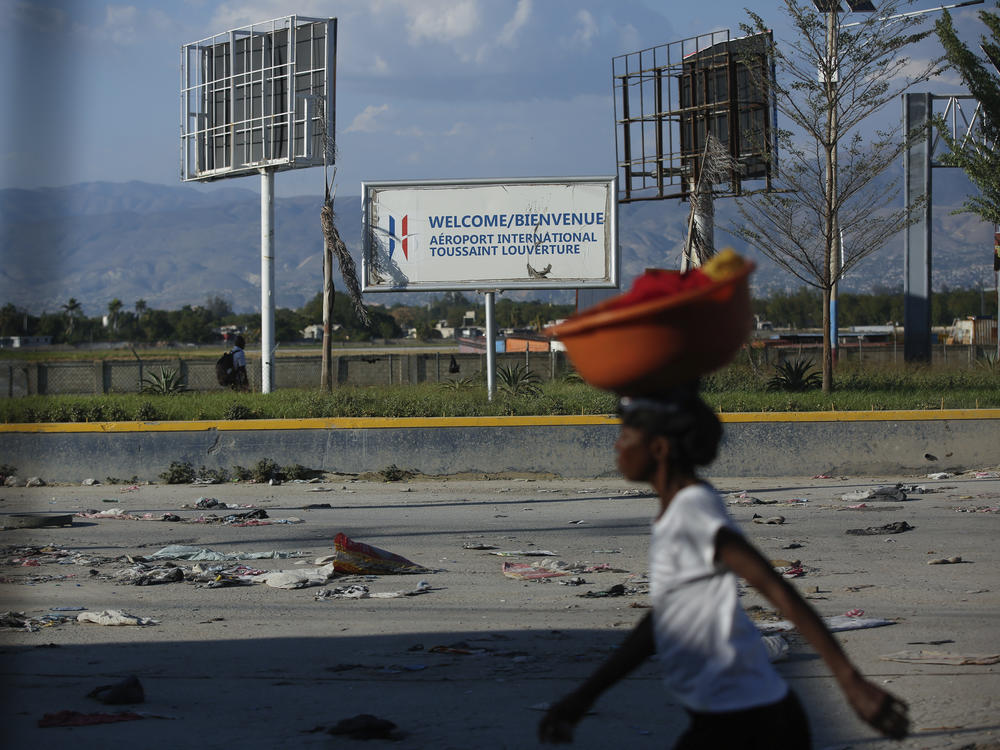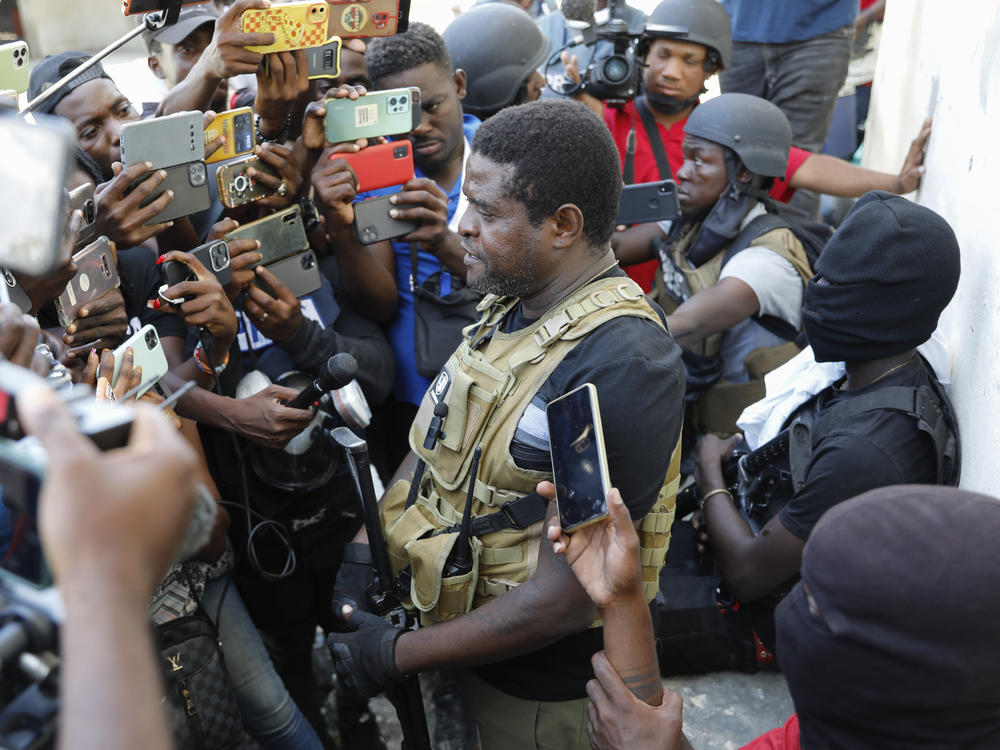Section Branding
Header Content
Haiti's prime minister is stranded abroad as gangs threaten 'civil war'
Primary Content
Gangs in Haiti continue to surround the country's main airport in the capital Port-au-Prince, making it impossible for the de facto prime minister to return to his country.
Prime Minister Ariel Henry is currently in Puerto Rico, unable to get back to Haiti amid gang violence.
Sheila Angleró Mojica, a spokesperson for Puerto Rico's governor, confirmed to NPR that Henry had landed in the capital San Juan on Tuesday.
The Foreign Ministry of the Dominican Republic said in a statement the U.S. and Henry had asked the Dominican government for permission for his airplane to make an "indefinite layover in Dominican territory," which borders Haiti. "On two occasions, the Dominican government communicated the impossibility of this layover," the statement read.
Instead, Henry flew to Puerto Rico, where he is still believed to be. Henry did not answer phone calls from NPR and a government spokesperson, Chenald Augustin, said he could not provide any information.
Henry was last seen in public on Friday in Nairobi, where he signed a reciprocal agreement with Kenyan President William Ruto, paving the way for a Kenyan-led, U.N.-backed multinational force to help quell the growing violence in Haiti.
During a press conference on Tuesday, Haiti's most prominent gang leader, Jimmy "Barbeque" Chérizier issued an ultimatum, warning that "if Ariel Henry does not resign ... we'll be heading straight for a civil war that will lead to genocide."
Haiti's government declared a 72-hour state of emergency on Sunday after gangs attacked two major jails in Port-au-Prince. A number of police officers were killed and thousands of prisoners escaped.
The weekend's wave of violence comes amid growing chaos and lawlessness in Haiti, sparked by the assassination of President Jovenel Moïse in 2021.
Haiti is in free fall. There isn't a single elected official with a current mandate, including the prime minister; security services are overwhelmed; millions are going hungry, many are in need of medical assistance, and it's still unclear when Kenyan police might arrive in the country.
The United States is working with Caribbean nations to press Haiti's embattled prime minister to agree to a transition to elections.
Asked by a journalist about a report in the Miami Herald that the U.S. and governments in the Caribbean regional CARICOM bloc were pressing Prime Minister Henry to resign, U.S. Ambassador to the United Nations Linda Thomas-Greenfield would only say that diplomats want him to agree on a plan to establish a transitional council that will lead to elections.
"We think that it's urgent that he moves forward in that direction and start the process of bringing normalcy back to the people of Haiti."
Thomas-Greenfield says the U.S. is also working with Kenya on plans to get a multinational force to Haiti to quell the violence.


